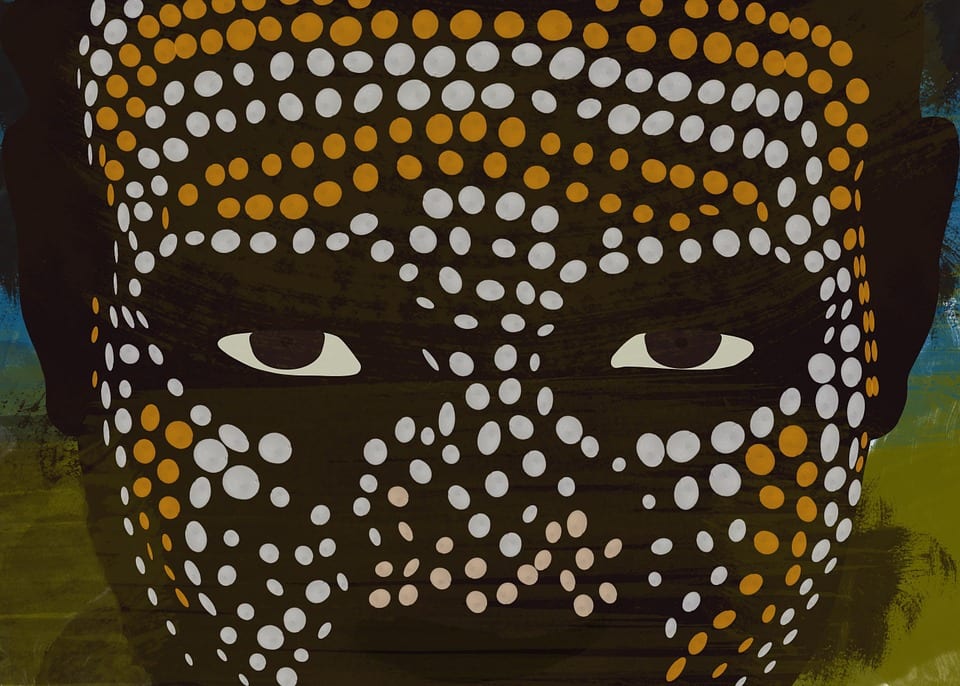
In the XNUMXst century, literature has become a more democratic art, although there are still many battles to win and prejudices to overcome. A situation that responds to a current in which, for centuries, the western literature it was imposed throughout the world, including those continents in which the white man set foot, conditioning the art of a region or culture without allowing them to express it in their state of grace. Ngũgĩ wa Thiong'o, from Kenya and Murakami's eternal companion in opting for the Nobel, is one of the best voices on the continent on this issue and one of these 5 authors to approach African literature.
Chinua achebe
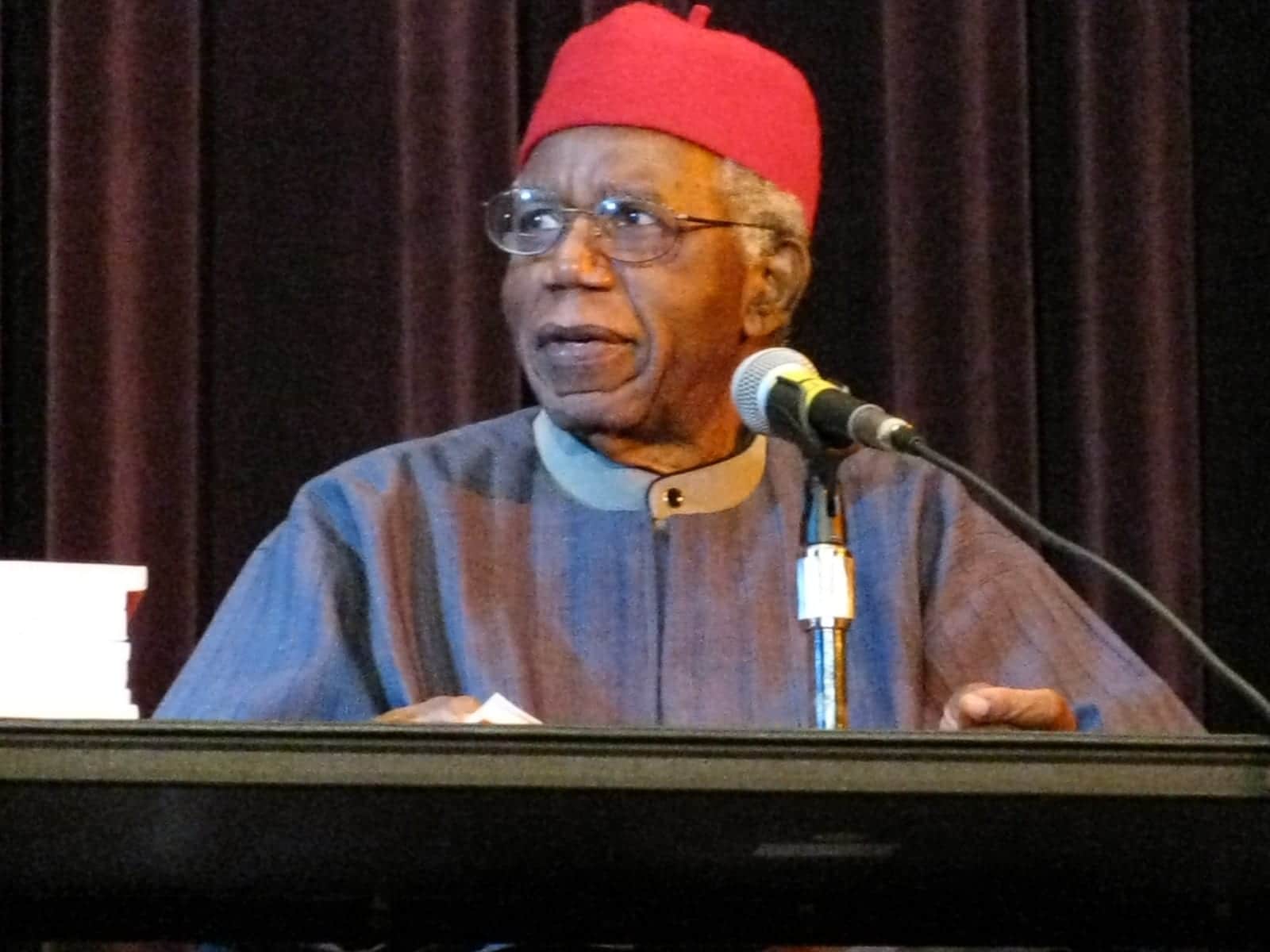
Born in ogidi, a Nigerian people, as a member of the Igbo ethnic group, Achebe is possibly the most universal author of the African continent thanks to works like Everything falls apart, published in 1958. A work that takes as its inspiration the author's own childhood, raised in an environment that was beginning to be conquered by Anglican evangelization, to tell us the story of a warrior, Okonkwo, who attends the fall of his world after the arrival of the white man. One of the best authors to get started in African literature, definitely.
Chimamanda Ngozi Adichie
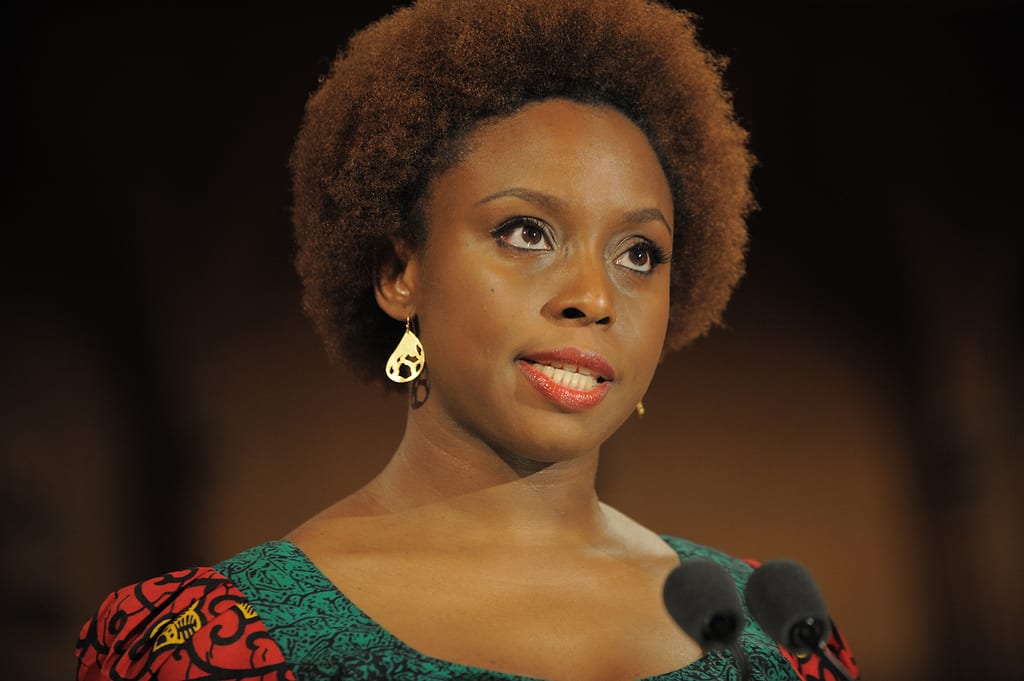
Nigerian author Chimamanda Ngozi Adichie.
The most influential African writer of today (if we enter the TOP Amazon of pan-African literature, the first four positions are hers) was born in Nigeria in 1977 and raised in the house of Chinua Achebe until a scholarship took her to the United States, where he would be trained in African Literature and Political Relations. Years later, the world would witness the good work of Ngozi Adichie, an author who, in addition to expressing her vision of the African continent in books such as The purple flower o Half yellow sun It is also the strongest voice of a feminism present in works such as Americanah, the best known, or the set of stories Something around your neck.
Ngũgĩ wa Thiong'o
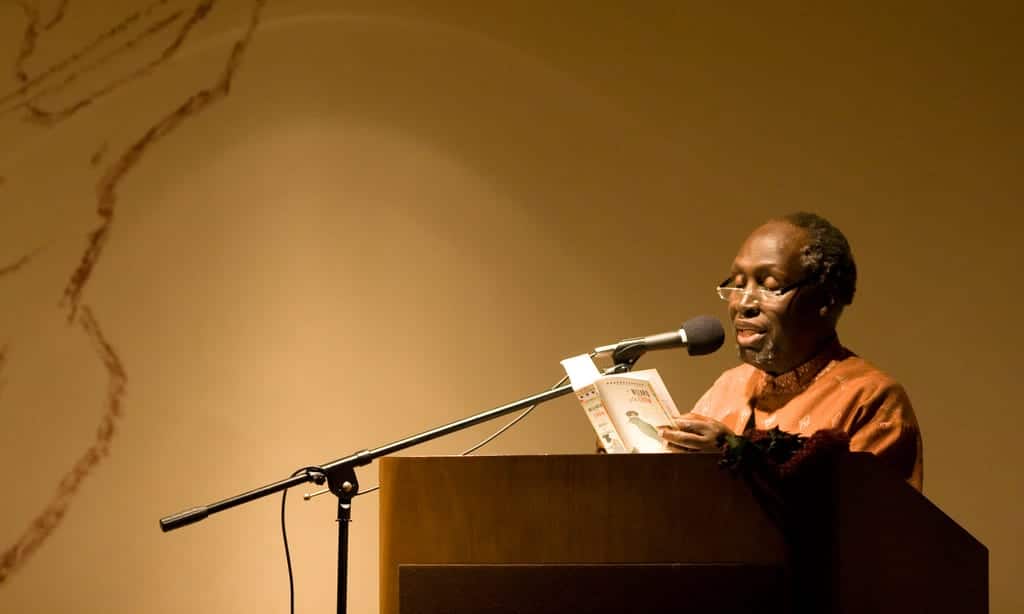
Ngũgĩ wa Thiong'o, during one of his lectures.
My favorite to win the Literature Nobel last year (and the year before, and the other) is Ngũgĩ wa Thiong'o, a Kenyan author who has managed like few others to capture the situation in Africa in post-colonial times. Decolonize the mind, one of his few books published in Spain together with The raven witch, is an essay that addresses the presence of a white man who forced African university students to disdain their own literature and embrace Shakespeare, who called meetings of African literature marginalizing those who refused to abandon their local languages instead of English. Examples to which should be added the fact that a simple play in en kikuyu, native language of the author, would be a sufficient excuse to put its author behind bars. It was in 1978, the year Thiong'o wrote his first Kikuyu work on a roll of toilet paper.
Wole soyinka
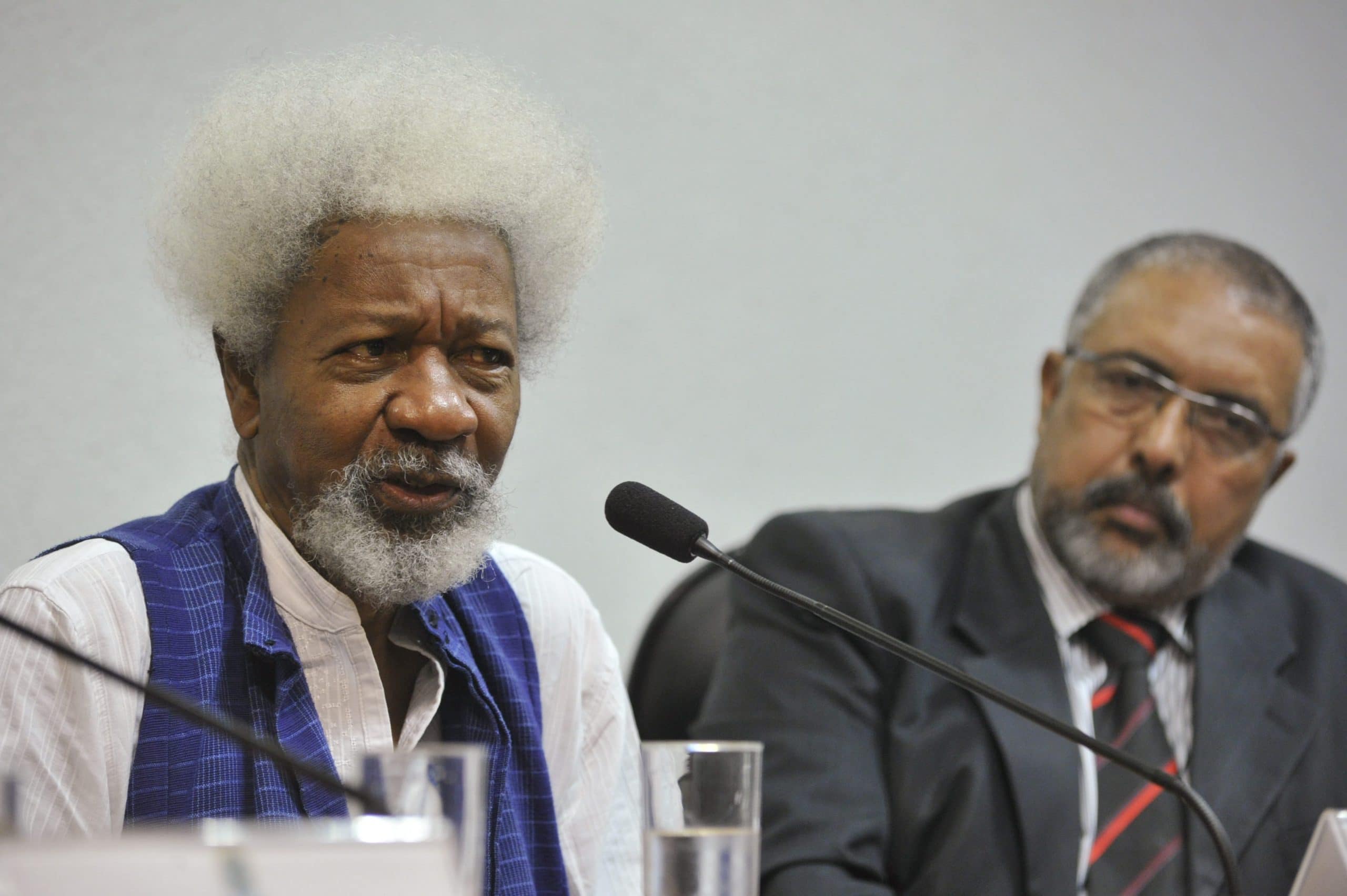
Turned to the first African to win the Nobel Prize for Literature In 1986, Soyinka is a Nigerian author characterized by a prose that adapts African myths to Western forms of narration, especially after having studied for several years in the United Kingdom. His way of mimicking whites at the time led to much criticism from African literary circles still hurt by the effects of post-Cholianism until he returned to his continent, blending in with his theatrical and literary scenes. Aké: the childhood years, in which he narrates his life from 3 to 11 years old, is possibly his best known work.
JMCoetzee
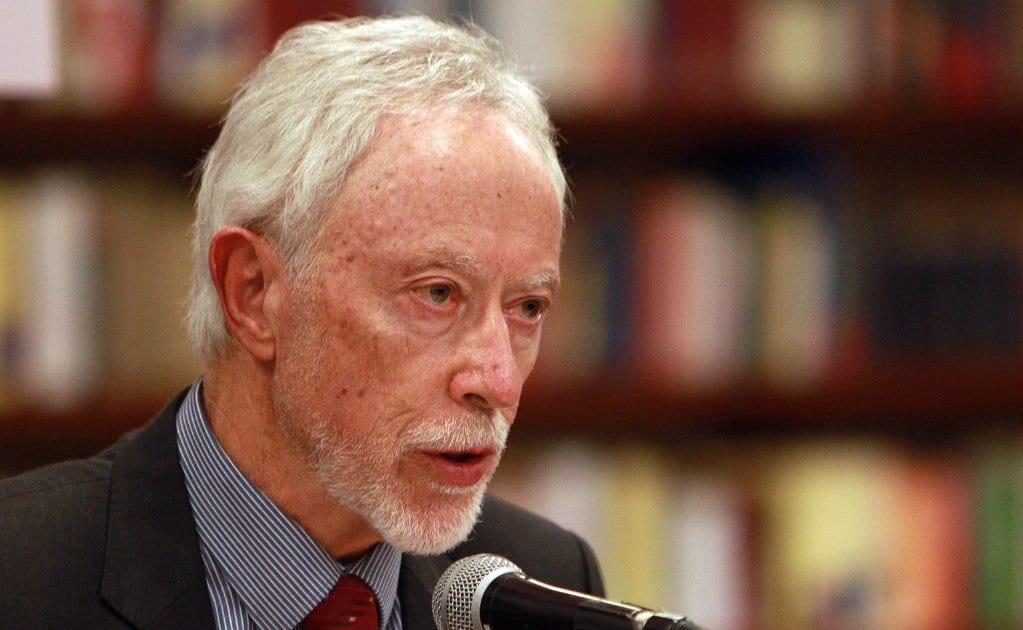
ⒸElUniversalMexico.
South Africa is the country that has best defined the changes in Africa during the last fifty years, especially with episodes as bloody as the apartheid abolished in 1994. Coetzee, a descendant of Danish colonists who arrived in South Africa in the XNUMXth century, has embodied his vision of racism in the country of the rainbow and its harmful effects on society in works such as Summer or the most popular, Misfortune. In 2002, Coetzee won the Nobel Prize for Literature, joining the aforementioned Soyinka, his compatriot Nadine Gordimer and the Egyptian Naguib Mahfuz as the four african authors recognized by the Swedish committee so far.
Do you like African literature?
Putting JMCoetzee before hundreds of other African writers with more impact seems perverse to me. Racism is not African history, it is Western history.